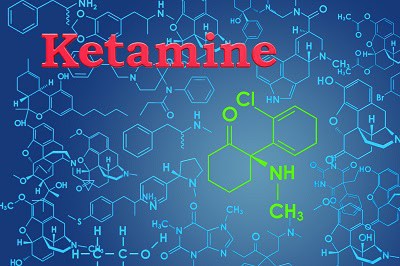Ketamine-Assisted Psychotherapy for Addiction
by Thaddeus Camlin, Psy.D.

Ketamine’s Place in the Treatment of Addiction
Ketamine reliably and quickly alleviates severe depressive symptoms. Many ER hospitals currently treat people who are actively suicidal with ketamine, and often those people are discharged within a matter of hours. Dramatic alleviation of severe depressive symptoms as a result of ketamine treatment often lasts two or three days, sometimes longer. Given the propensity for depression and suicidality to co-occur with addictive problems, ketamine is now included as part of a broader psychotherapeutic approach in the treatment of addiction.
Ketamine-Assisted Psychotherapy: How it Works
Much like the protocol for MDMA assisted psychotherapy for PTSD, ketamine-assisted psychotherapy for addiction involves preparation and integration sessions to maximize the lasting impact of ketamine. In preparation therapy, clients identify clear and specific intentions for ketamine. During ketamine infusions, clients are encouraged to write notes about any insights or ideas that come to them. Therapy sessions between ketamine infusions focus on processing and analyzing themes that emerge from notes taken during and immediately following ketamine. Notes from ketamine sessions facilitate psychological integration in therapy and promote lasting change.
More Research is Needed
Ketamine assisted psychotherapy for addiction is under-researched. There is some hesitancy to provide ketamine assisted therapy to people working to overcome addictive problems, perhaps in part due to social stigma and misinformed ideas about cross-addiction. Given the lack of empirical data, it is important for people considering ketamine-assisted psychotherapy to do their own research and seek out reputable, licensed providers to maximize safety.
If you are interested in learning more about ketamine-assisted psychotherapy for addiction, contact us at 800-977-6110 and one of our psychologists would be happy to discuss it with you.
